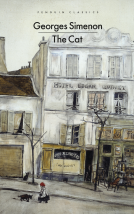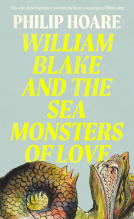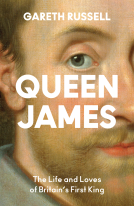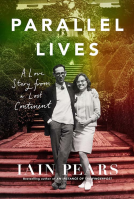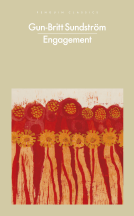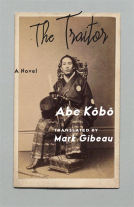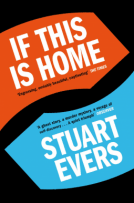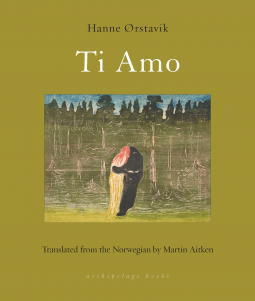
Ti Amo
by Hanne Ørstavik
This title was previously available on NetGalley and is now archived.
Send NetGalley books directly to your Kindle or Kindle app
1
To read on a Kindle or Kindle app, please add kindle@netgalley.com as an approved email address to receive files in your Amazon account. Click here for step-by-step instructions.
2
Also find your Kindle email address within your Amazon account, and enter it here.
Pub Date 13 Sep 2022 | Archive Date 4 Aug 2022
Talking about this book? Use #TiAmo #NetGalley. More hashtag tips!
Description
Celebrated throughout the world for her candor and sensitivity to the rhythms of language, Hanne Ørstavik is a leading light on the international stage. Ørstavik writes with “a compulsion for truth that feels like [her] very life force itself.” Laced with a tingling frankness, Ørstavik’s prose adheres so closely to the inner workings of its narrator’s mind as to nearly undo itself. In Martin Aitken’s translation, Ørstavik’s piercing story sings.
Ti Amo brings a new, deeply personal approach, as the novel is based in Ørstavik’s own experience of losing her Italian husband to cancer. By facing loss directly, she includes readers in an experience that many face in isolation. Written and set in the early months of 2020, its themes of loss and suffering are particularly well suited for a time of international mourning.
What can be found within a gaze? What lies inside a painting or behind a handful of repeated words? These are the questions that haunt our unnamed narrator as she tends to her husband, stricken with cancer, in the final months of his life.
She examines the elements of their life together: their Vietnamese rose-colored folding table where they eat their meals, each of the New Year’s Eves they’ve shared, their friendships, and their most intimate exchanges.
With everything in flux, she searches for the facets that will remain.
Available Editions
| EDITION | Other Format |
| ISBN | 9781953861443 |
| PRICE | US$18.00 (USD) |
| PAGES | 200 |
Average rating from 9 members
Featured Reviews
 Kyle C, Reviewer
Kyle C, Reviewer
Hanne Ørstavik's <i>Ti Amo</i> is a bare memoir of grief as well as a deeply emotional love-letter addressed to her husband who died in 2020. Over the course of a week, she meticulously writes down her experiences in the final days of her husband's fight against pancreatic cancer. The product is a literary diary book recording everything—the step-by-step process of inserting a catheter into her husband's body, her resentment at organizing an impromptu dinner party, the challenges of filling a morphine prescription, their emotional inability to discuss death openly, her pre-planned tour to promote her book at a fair in Guadalajara and her unexpected love for a Mexican business lecturer. These disparate experiences prompt further philosophical questioning. Who is her real husband, the one suffering in pain or the one revivified by morphine? Why do hospitals hide death from their patients, couching everything in euphemism and ellipsis to avoid admitting the hard realities, hiding even the evidence of the catheter from his sight? Like her famous novel, <i>The Priest</i>, her reflections touch on the powerlessness of language, the inability of words to truly communicate feeling. As she writes to her husband, "you're in a place where it's impossible to reach you by words". She quotes a passage from Birgitta Trotzig who describes how tragedy "transforms all speech into an unreal rustling of leaves". Death is a giant stop-sign where language cannot pass.
This is a moving book. It is not a tautly structured work but a deeply personal, repetitive and ruminating, record of her feelings, subjecting her own life to the same introspective analysis she uses in her works of fiction.
A deep meditation on love, loss and grief, the author pours her heart out on to the pages and she ruminates on the last days of her late husband. Her pain is reflected thorough in every words, the grief she carries and the love she kindled for her husband inside. A deeply personal work, you would not find to be a straight tangible linear work, you may find it repetitive and sometimes, distressing but this book needs you to look beyond the lines and feel. A truly wonderful book.
Thank you so much Netgalley, the author and the publisher for allowing me to review this book in exchange of honest opinion. I appreciate it!
Ti Amo was a very difficult book for me to read. It's extremely emotional and I could feel her grief, her struggles, her love so intensely that it felt like a heavy burden on my chest. The moment I started reading the book, I knew it would be a good one though I wasn't sure if I could finish it. It took time to get into flow. The writing was poetic in a way which I loved but it also demanded focus and energy to keep up with the scenarios. After finishing the book, all I can say is it was worth it. I'm definitely buying a copy.
 Margot S, Reviewer
Margot S, Reviewer
A slim volume that packs a punch. It's about the pain and confusion of learning to live while your partner is dying. One night after four years together, Orstavik's husband vomits blood. Soon they discover he has pancreatic cancer. What follows is surgery, treatments, pain meds, and hoping things will get better. The book is an attempt to honour their love, capture what remains of their life together, and to to say all that goes unsaid between them. It is very sad and beautifully written. Writing is how Orstavik makes sense of her world, where she goes to tell the truth, and so she turns to writing in the midst of her grief. The result is this novel/memoir/work of autoficion. It is not an easy ready, but it's raw, brave and honest.
Thank you to Netgalley and Archipelago books for the advance copy!
 Mandy J, Reviewer
Mandy J, Reviewer
This is a powerful short book about death and grief. Based on the author’s own experience of losing her husband to cancer, the unnamed narrator reflects on her relationship with the man who is now in the last months of his life, their shared experiences, searching for what will remain once he has gone. It’s a very personal work and all the more moving for that. It’s harrowing to read of the husband’s suffering, as the pain becomes more and more intractable. She reflects too on the effort she has to make to support and care for him, and the toll it takes on her. Ti amo/ I love you is the refrain that haunts the book and what they say to each other throughout. A sad memoir of loss and bereavement and the cruel ravages of cancer.
A very personal and honest work. The author writes about her dying husband and all the things that aren’t said, only ‘Ti amo’. It’s gut wrenching in parts, her husbands pain and treatments, the lack of discussion about death even though the doctors have told her he has less than a year, but not the patient, he doesn’t appear to want to know. Moving and emotional.
 Karen H, Reviewer
Karen H, Reviewer
Ti Amo is, without question, the most beautifully written and affecting book about love and grief I’ve read this year.
In less than 100 pages Hanne Ørstavik captures the complex emotions of a woman conscious that illness will soon separate her from her beloved husband. She knows his pancreatic cancer is incurable and he has less than a year to live. If he knows this too, then he never admits it nor shows any sign of wanting to know the prognosis.
Their life since his diagnosis is full of silences and things left unsaid. They never talk about the rapid advance of his illness or his increasing reliance on ever stronger pain medication. They don’t discuss the future. Nor do they consider how she will cope without him.
The one emotion over which there is no veil of silence is their love for each other. ‘Ti amo,’ (I love you) they frequently tell each other. Words they cling to when everything else feels unstable.
The unnamed narrator of Ti Amo is a Norwegian novelist living in Milan with her Italian publisher husband. The book she writes is a type of chronicle which contrasts their relationship before and after illness struck.
The first glorious years of their relationship were full of literary festivals, conferences and seminars. But they also found time to dine in swish restaurants and explore the world, relishing wine tasting in Bordeaux and watching with fascination the funeral pyres along the Ganges.
Now his days are so racked with pain that just walking to the pharmacy a few blocks away or to his office can take all his energy. They find pleasure now in simpler activities — tea on the balcony watching wild birds peck at suet cake. An occasional visit to a favourite neighbourhood pasticceria for hot chocolate. But mostly each day he spends hours in bed, either too exhausted to work or in a drug-induced sleep.
Understandably Ti Amo is a novel seared with pain and anguish. It offers a window into mix of emotions associated with bereavement; the partner’s distress when they see their loved one racked with pain and can do little to help. The longing for the suffering to be over yet feeling unready or unable to say farewell.
The one emotion over which there is no veil of silence is their love for each other. ‘Ti amo,’ (I love you) they frequently tell each other. Words they cling to when everything else feels unstable.
The unnamed narrator of Ti Amo is a Norwegian novelist living in Milan with her Italian publisher husband. The book she writes is a type of chronicle which contrasts their relationship before and after illness struck.
The first glorious years of their relationship were full of literary festivals, conferences and seminars. But they also found time to dine in swish restaurants and explore the world, relishing wine tasting in Bordeaux and watching with fascination the funeral pyres along the Ganges.
Now his days are so racked with pain that just walking to the pharmacy a few blocks away or to his office can take all his energy. They find pleasure now in simpler activities — tea on the balcony watching wild birds peck at suet cake. An occasional visit to a favourite neighbourhood pasticceria for hot chocolate. But mostly each day he spends hours in bed, either too exhausted to work or in a drug-induced sleep.
Understandably Ti Amo is a novel seared with pain and anguish. It offers a window into mix of emotions associated with bereavement; the partner’s distress when they see their loved one racked with pain and can do little to help. The longing for the suffering to be over yet feeling unready or unable to say farewell.
It’s frank yet tender and compassionate, it’s emotional heft enlarged by its resonance with the author’s own experience. Like her narrator Hanne Ørstavik married her Italian born publisher and moved to Milan to be with him. She too lost her own husband to cancer in 2020, two years before Ti Amo was published. Ti Amo is however not a simple autobiography; it’s a novel that explores the nature of love in the most challenging of circumstances and asks how can we survive when the person we love most is about to die.
 Reviewer 43423
Reviewer 43423
This is an intense, introspective, and even claustrophobic work, and evidently an autobiographical one. For Archipelago Books, its publisher, it is an “uncategorized” title—not definitively fiction or autobiography. The subject matter is painful. In it the unnamed narrator, a writer, addresses her sensitive, intelligent husband (also unnamed)—a successful publisher who once aspired to be an artist. He is dying of pancreatic cancer.
Their relationship has not been a long one—four years. They married only the previous summer, in August 2019. After his diagnosis, the narrator’s partner wanted to affirm their love in a formal union. In this man, the writer had, for the first time, found home and a sense of belonging. She had also moved from Oslo to Milan. One of the questions for her now is how she will continue without him. Her main preoccupation, however, is with her husband’s unwillingness or inability to acknowledge that he is dying. The writer has always believed herself to be a person committed to the truth—facing it head-on—yet she finds she cannot broach the subject with him. His doctors also do not. <spoiler>Their philosophy is that if the patient is not asking questions, they do not supply information that could deprive him of hope. The oncologist comments that the narrator too has not been seeking clarification.</spoiler>
For close to two years, since her partner began to experience concerning symptoms, the writer has been unable to write. She rereads a notebook entry from months before in which she observed: “It’s as if the writing in me has withdrawn — tactfully, almost — not wanting to bother me in these times.” After a trip to a book fair in Guadalajara, Mexico, she feels a return of life energy and purpose, recognizing that the novel she has begun—this novel, <i><b>Ti Amo,</i></b> now before the reader—“is the life I live on the inside and it fetches things up from different times and separate layers that I often don’t realize need to meet, so that I can be with them, the way you might sit on the edge of a bed in the evening and hold the hand of a child, just being there, for the novel possesses an insight so much deeper than my own, and because it’s in touch with this very life force itself, it knows so much better than I do where the wave of each new novel is going to take me. But since . . . you [the husband] became ill, it’s been completely impossible for me to write . . . your coming meant that I moved forward, I came home. But now you’re going to die, you, who allowed me at last to find that home with you, and how am I going to move forward from that, here and now?”
During the pandemic, I read a short piece by a retired doctor whose wife had recently died (not from the virus). He noted that during the course of her final illness, she had not wanted to speak about her death. In the end she thanked him for “letting her go gently.” It occurs to me that people have their own way of leaving this life. It can be hard work to let go. Sometimes a lot of talking about “the truth” is not the path for everyone. You can know things in your own time and your own way. Doing a lot of talking isn’t everyone’s way.
Readers who liked this book also liked:
Philip Hoare
Arts & Photography, Biographies & Memoirs, Nonfiction (Adult)
Pirkko Saisio
Biographies & Memoirs, General Fiction (Adult), Literary Fiction
We Are Bookish
Biographies & Memoirs, Health, Mind & Body, Nonfiction (Adult)

